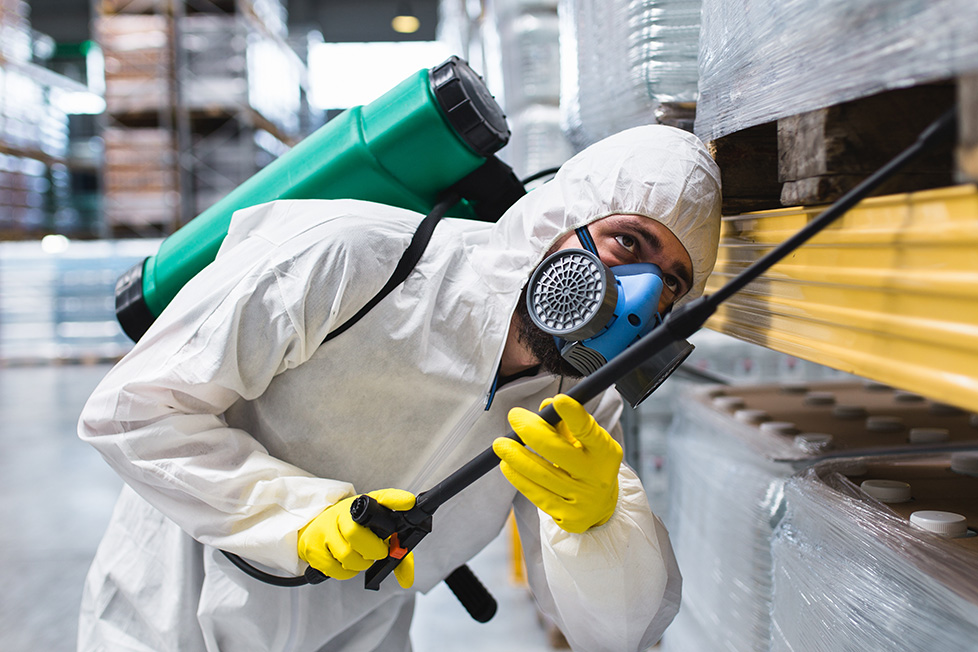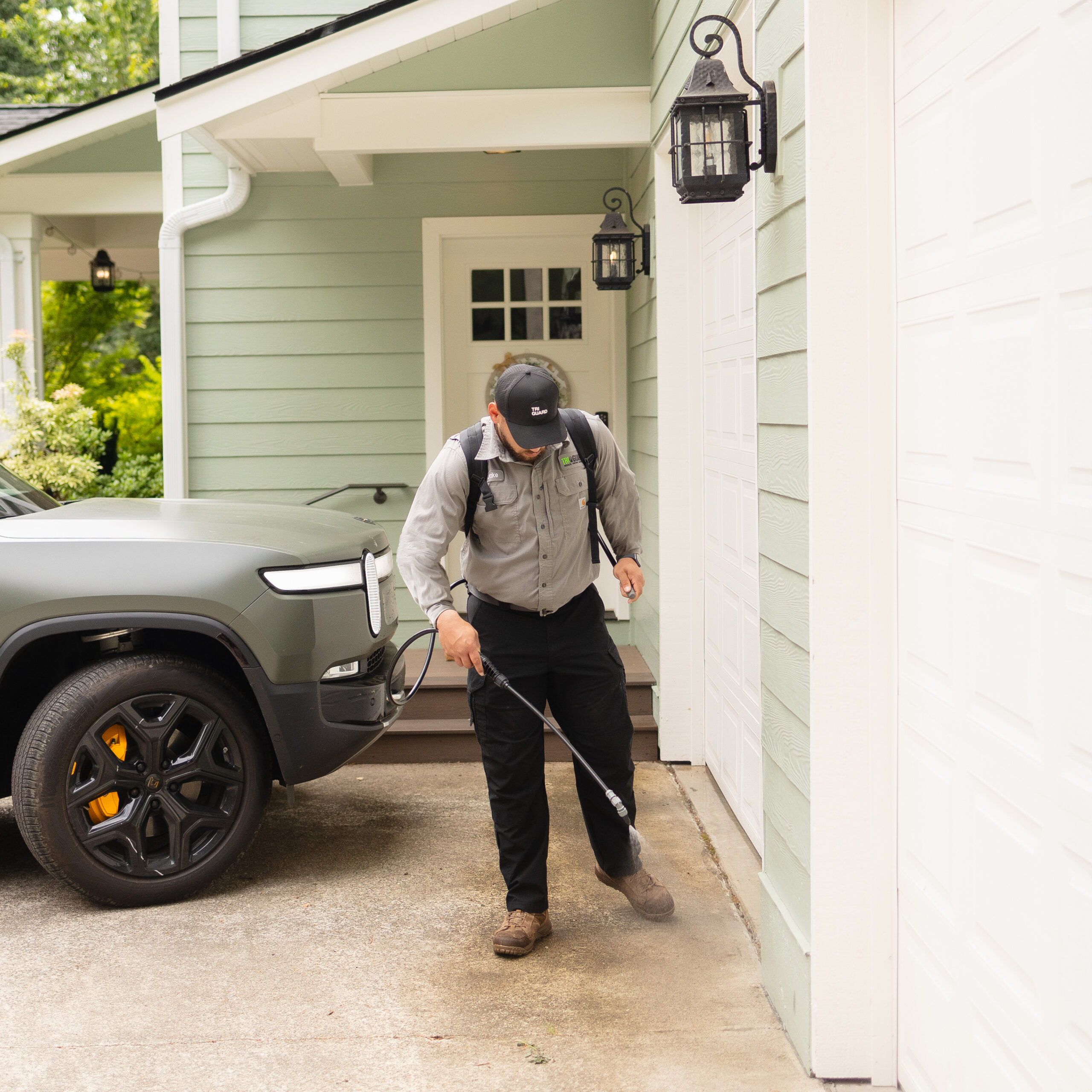A1 Commercial Pest Control Portland - Reliable Bed Bug Solutions for Companies
A1 Commercial Pest Control Portland - Reliable Bed Bug Solutions for Companies
Blog Article
Efficient Insect Control Providers: An In-Depth Consider Extermination Techniques and Prevention Measures
In the realm of pest control solutions, the successful administration of invasions requires a meticulous method that combines numerous methods and procedures for both obliteration and prevention. From Integrated Parasite Management (IPM) techniques that focus on lasting solutions to chemical elimination methods designed for targeted elimination, the collection versus parasites is huge and diverse.

Integrated Parasite Management (IPM) Strategies
Integrated Insect Management (IPM) Approaches incorporate an extensive strategy to pest control that concentrates on prevention, control, and monitoring techniques to effectively take care of bug populaces. By incorporating various strategies, IPM aims to minimize the effect of parasites while also decreasing the dependence on chemical pesticides. Prevention lies at the core of IPM, stressing techniques like appropriate hygiene, maintenance of health, and securing entrance indicate deter parasites from infesting buildings. Surveillance plays a critical duty in IPM by consistently inspecting and recognizing pest degrees to determine the appropriate intervention thresholds. Control techniques in IPM prioritize using physical, organic, and social strategies prior to turning to chemical treatments as a last resource. These methods consist of presenting all-natural predators, habitat adjustment, and using capturing tools to keep bug populaces in check. In general, IPM fosters a sustainable and eco conscious strategy to pest monitoring, promoting long-lasting solutions that secure both human health and wellness and the ecosystem.
Chemical Elimination Strategies
Chemical elimination methods are typically utilized in insect control services to efficiently eliminate pest populaces that position a risk to human wellness and residential or commercial property. These strategies involve using different chemical compounds especially developed to target and get rid of parasites such as pests, rodents, and other undesirable creatures. The application of pesticides, insecticides, rodenticides, and various other chemical agents is carefully managed to make sure maximum efficiency while lessening risks to human beings, animals, and the atmosphere.
One of the vital advantages of chemical elimination techniques is their capacity to offer fast and targeted results, making them particularly useful in instances of severe problems or urgent parasite control needs - a1 pest control in portland oregon bed bugs. However, it is important to emphasize the value of appropriate handling, application, and disposal of these chemical items to avoid unplanned harm
Additionally, incorporated insect management (IPM) approaches frequently combine chemical extermination methods with various other approaches such as cleanliness, environment alteration, and organic controls to produce a lasting and thorough pest control strategy. By incorporating chemical elimination methods deliberately within an IPM framework, bug control solutions can efficiently take care of parasite populations while decreasing possible threats to human health and wellness and the atmosphere.
Organic Bug Control Approaches
Utilizing all-natural predators and bloodsuckers to manage bug populaces is a lasting method recognized as organic insect control. This method harnesses the natural systems of the ecological community to manage parasite populations without relying upon synthetic chemicals. One usual biological control method involves introducing all-natural opponents of the target bug types, such as ladybugs for aphid control or nematodes for termite problems. These all-natural killers eat the parasites, assisting to keep their populaces in check.
Another efficient organic control technique is making use of microbial insecticides. These are normally taking place bacteria, such as bacteria, fungis, and infections, that especially target and contaminate certain pest species. By making use of these microbial representatives, pest populations can be effectively minimized without causing or hurting valuable organisms damage to the environment.
Physical Parasite Prevention Steps
Executing physical insect avoidance actions involves utilizing obstacles and architectural adjustments to prevent bugs from going into or infesting a property. Setting up door sweeps, screens on home windows, and sealing fractures in the foundation can aid stop parasites like bugs and rats from getting access inside your home.
Another physical avoidance step is the usage of obstacles like fence to maintain larger insects such as raccoons or deer away from the home. By applying these physical pest avoidance measures, residential property proprietors can significantly minimize the risk of bug infestations and the damage they can trigger.
Specialist Pest Inspection Procedures
Conducting thorough and methodical bug evaluations is a basic element of specialist insect management protocols. Expert bug assessors are trained to carefully examine properties for indications of problems, recognizing pest species, entry points, and helpful conditions. The a1 portland bed bug exterminator assessment process usually starts with an extensive evaluation of both the exterior and interior of the facilities. This involves checking for insect droppings, gnaw marks, nests, and any kind of structural damages that might suggest pest activity. In addition, assessors might utilize customized tools such as dampness meters and borescopes to identify concealed infestations within wall surfaces or crawl areas.

Verdict
Finally, effective parasite control solutions employ a range of methods, consisting of Integrated Insect Administration approaches, chemical extermination techniques, organic controls, and physical prevention procedures. Professional pest examination procedures play an important duty in identifying and dealing with pest concerns in a timely way. By implementing a combination of these methods, building owners can efficiently protect against and handle bug invasions.
From Integrated Pest Management (IPM) techniques that prioritize sustainable options to chemical elimination techniques made for targeted removal, the toolbox against pests is vast and complex.Integrated Pest Administration (IPM) Techniques incorporate an extensive method to pest control that focuses on prevention, control, and tracking approaches to properly handle parasite populaces.Chemical extermination methods are commonly used in insect control solutions to efficiently remove pest populations that pose a threat to human wellness and residential property.Employing natural killers and parasites to handle bug populations is a sustainable approach known as organic parasite control.In verdict, effective bug control solutions utilize a range of techniques, including Integrated Bug Monitoring strategies, chemical elimination techniques, organic controls, and physical prevention procedures.
Report this page